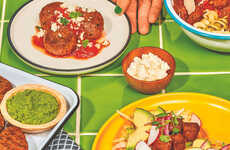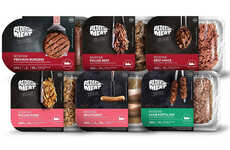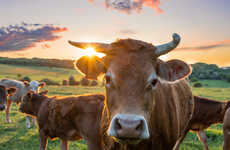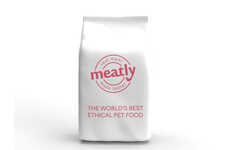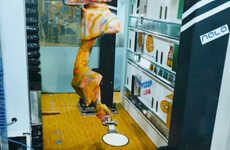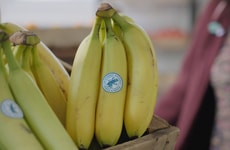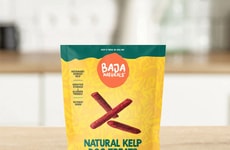
Knepp Estate Launches the 'Knepp Wild Range Meat' Brand
References: kneppwildrangemeat & thegrocer
Knepp Estate has launched ‘Knepp Wild Range Meat’, a sustainable meat brand from West Sussex. The meat is sourced from low-density, free-roaming cattle, pigs, and deer that are raised on the estate. Knepp advertises protein as the most sustainable way to produce meat, crediting the high-quality condition of the land and the animals. The animals consume no third-party fertilizers or pesticides commonly used in agriculture and live freely in the wild.
Knepp’s animals graze on plants and wildlife instead of protein used in large-scale farms. As a result, ‘Knepp Wild Range Meat’ contains healthier, richer meat that is not oversaturated with harmful chemicals. The meat arrives in recyclable packaging and is frozen to minimize waste.
“Eating meat doesn’t have to be an environmental dilemma. I believe ours is the most sustainable and ethical there is,” claims Ned Burrell from Knepp Estate.
Image Credit: Knepp Wild Range Meat
Knepp’s animals graze on plants and wildlife instead of protein used in large-scale farms. As a result, ‘Knepp Wild Range Meat’ contains healthier, richer meat that is not oversaturated with harmful chemicals. The meat arrives in recyclable packaging and is frozen to minimize waste.
“Eating meat doesn’t have to be an environmental dilemma. I believe ours is the most sustainable and ethical there is,” claims Ned Burrell from Knepp Estate.
Image Credit: Knepp Wild Range Meat
Trend Themes
1. Sustainable Meat Production - There is an opportunity for other farms to adopt sustainable meat production practices by raising free-roaming animals and using no third-party fertilizers or pesticides.
2. Natural Grazing Diets - There is an opportunity for meat producers to promote the use of natural grazing diets to produce healthier, richer meat with less chemicals and fertilizers.
3. Recyclable Packaging for Meat - There is an opportunity for meat producers to adopt recyclable packaging to minimize waste and promote sustainability in the industry.
Industry Implications
1. Livestock Farming - The livestock farming industry can adopt sustainable meat production practices to meet the growing demand for ethically-produced meat.
2. Meat Processing and Packaging - The meat processing and packaging industry can adopt recyclable packaging to minimize waste and promote sustainability in the industry.
3. Agriculture - The agriculture industry can promote the use of natural grazing diets for livestock to produce healthier, richer meat with less chemicals and fertilizers.
1.4
Score
Popularity
Activity
Freshness

